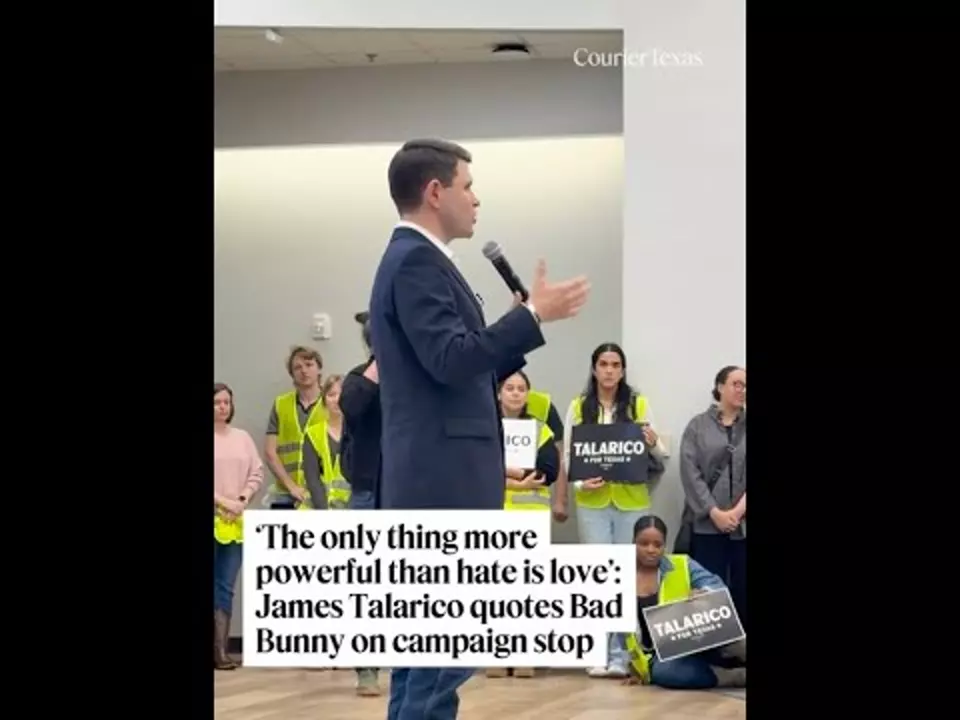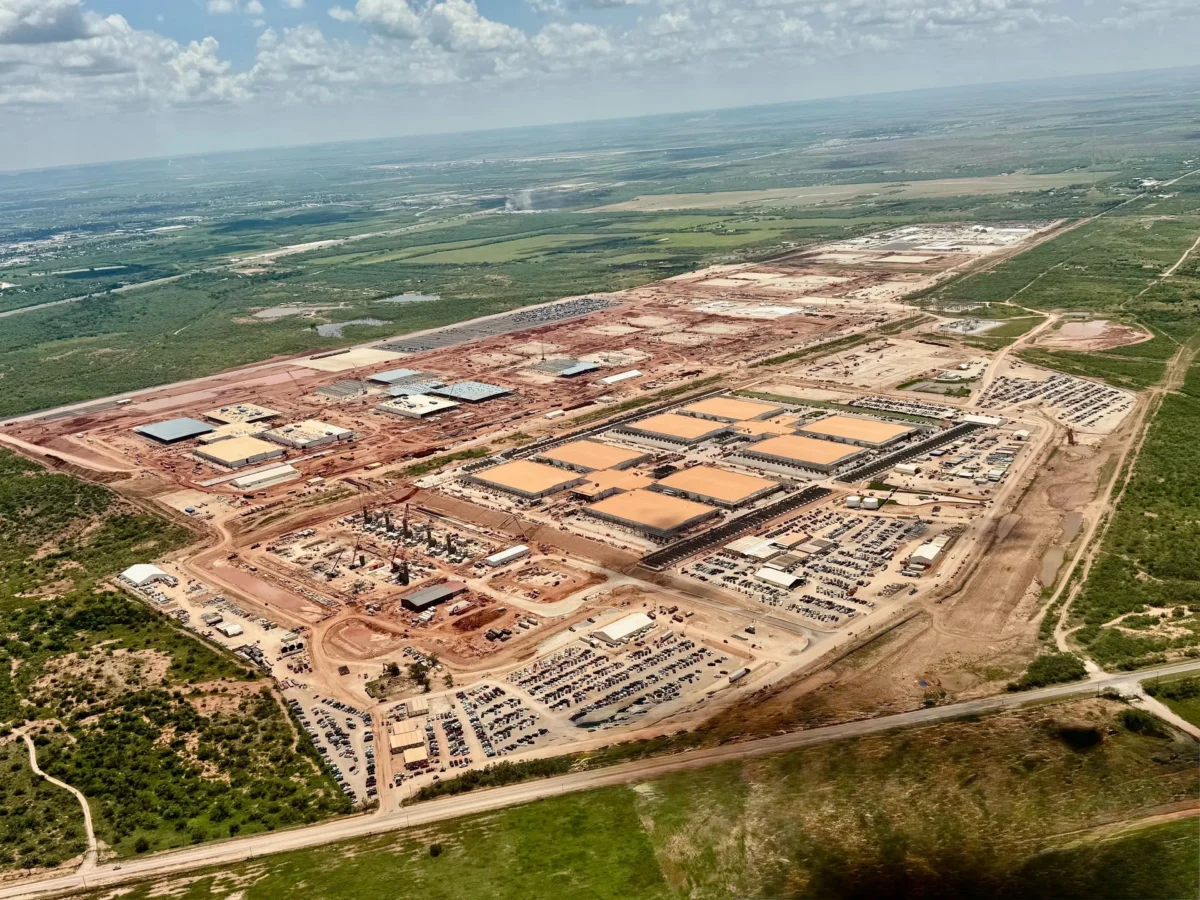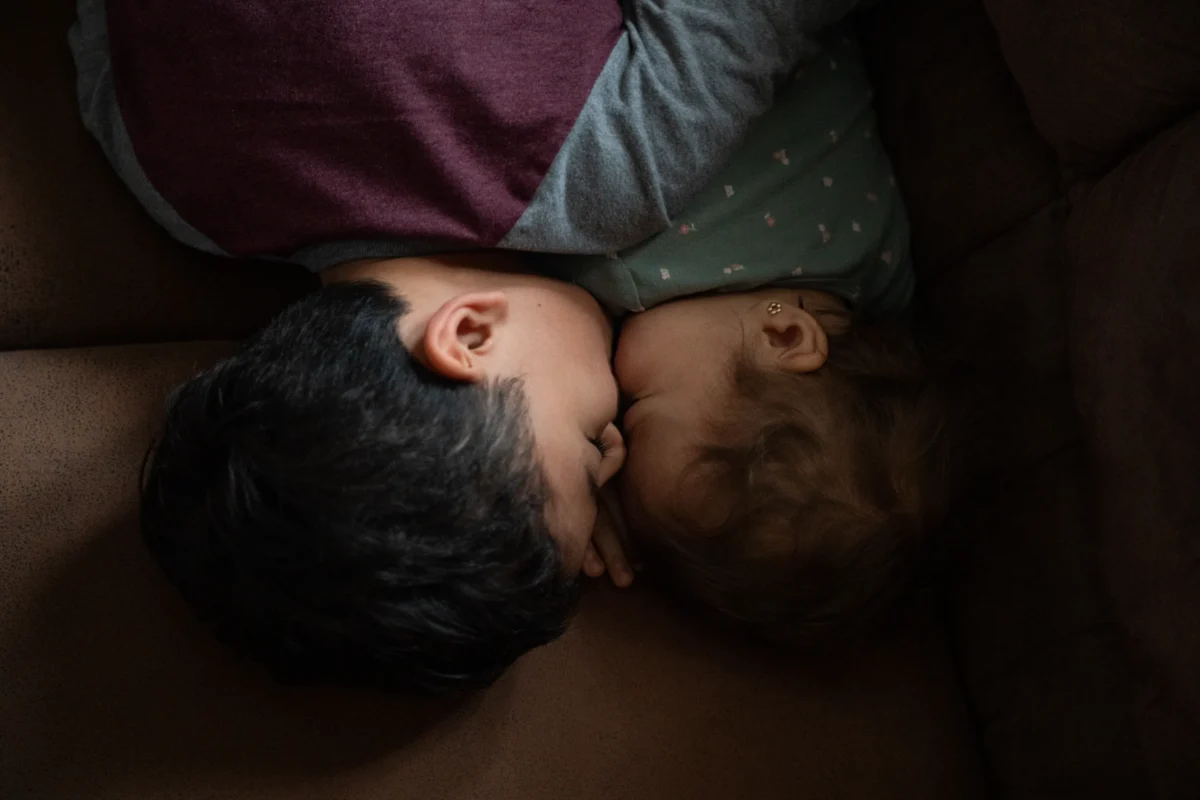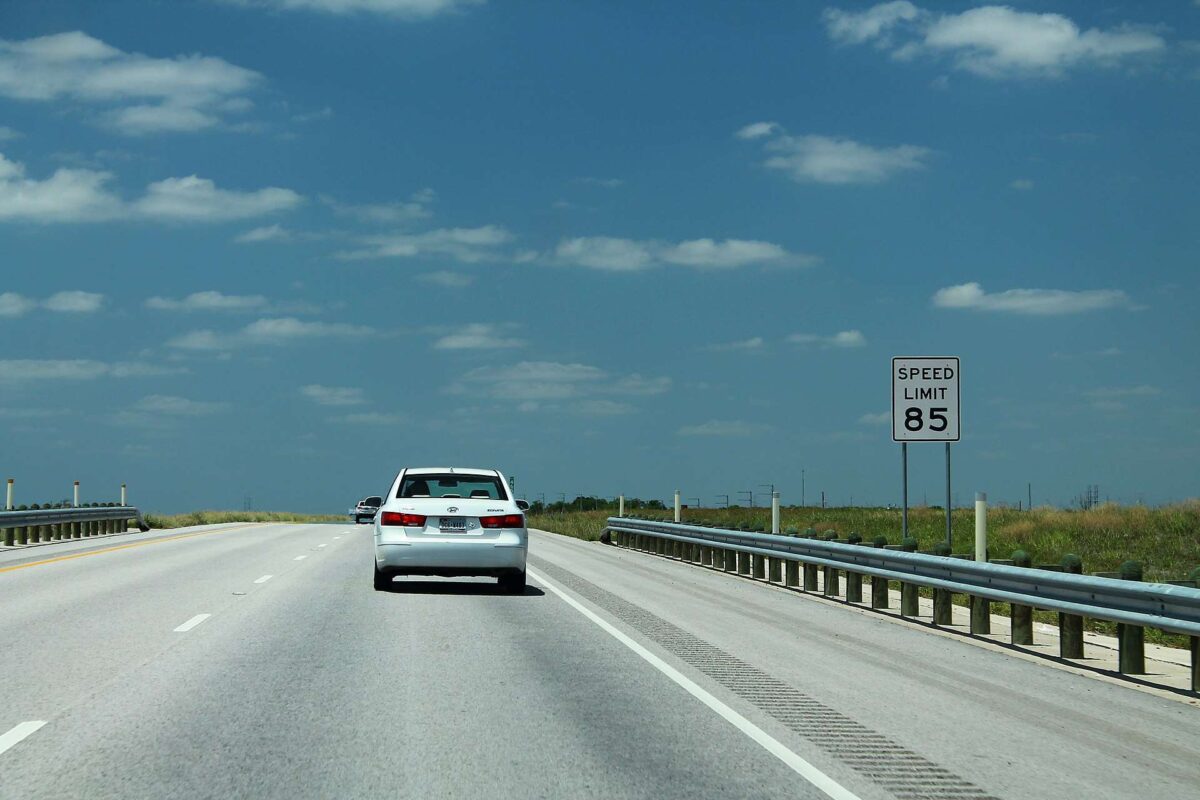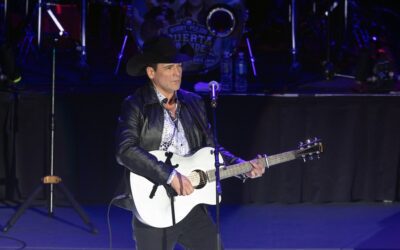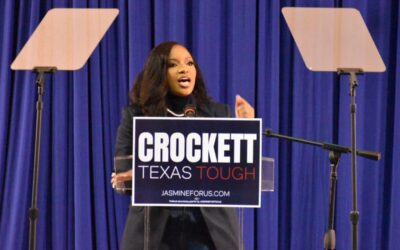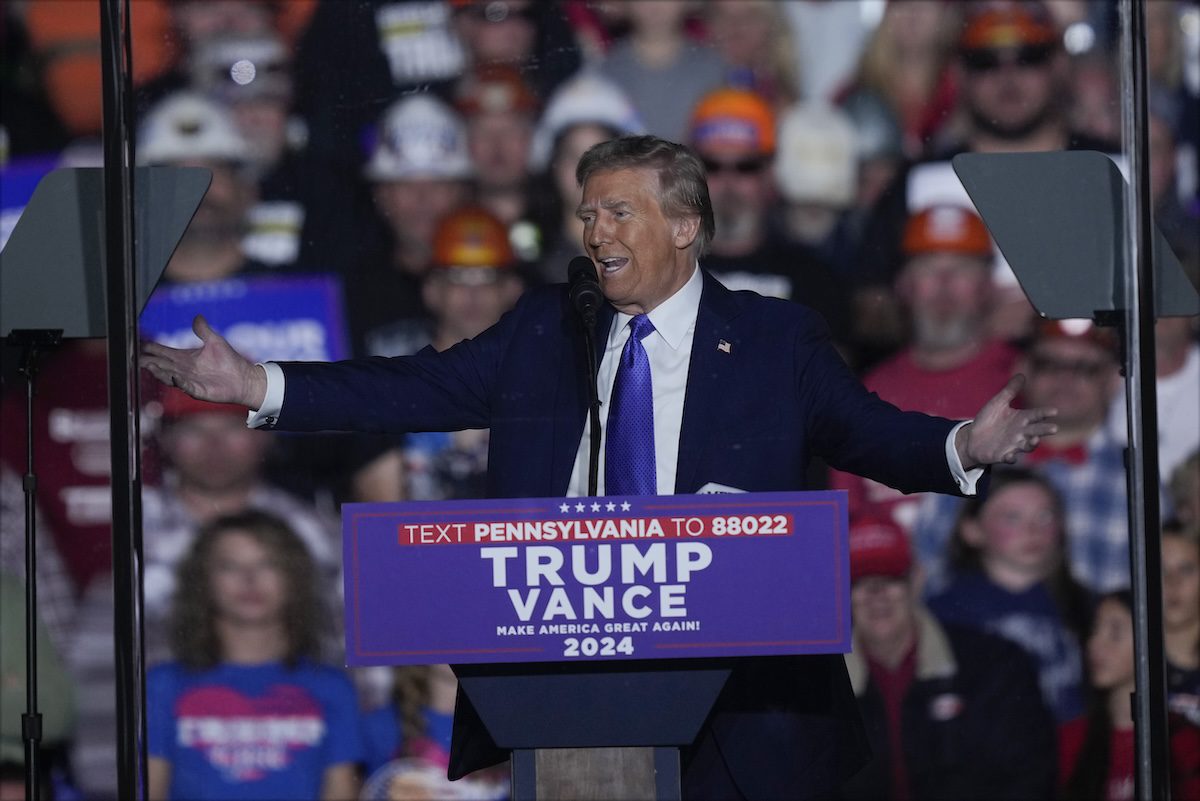
Republican presidential nominee former President Donald Trump speaks at a campaign rally, Saturday, Oct. 19, 2024, at Arnold Palmer Regional Airport in Latrobe, Pa. (AP Photo/Matt Rourke)
During a weekend appearance in Pennsylvania, the 78-year-old Republican presidential nominee spent 12 minutes rambling about golfer Arnold Palmer — including a bizarre aside about the size of Palmer’s genitalia.
With just two weeks to go until Election Day, the presidential candidates are making their closing pitch to voters in the key swing states that they hope will put them over the top and lead to victory on Nov. 5.
Over the weekend, Democratic nominee Kamala Harris made appearances in Michigan and Georgia, where she highlighted issues like the economy and reproductive rights.
Republican nominee Donald Trump, meanwhile, visited Latrobe, Pennsylvania, where he gave an hour-long speech that touched on his usual topics of choice — immigration and tariffs — but also included a bizarre opening in which the 78-year-old Trump spent 12 minutes talking about former golfer and Latrobe native Arnold Palmer, an extended period of rambling that concluded with Trump discussing the size of Palmer’s genitalia.
You can scroll all the way to the end if you want to see what Trump said about that, or you can watch it here. Below, we’ve reprinted the full portion of Trump’s speech about Palmer, which can be seen here.
DONALD TRUMP: Oh, hello, everybody. Hello, Pennsylvania. We love Pennsylvania. And a very special hello to Latrobe. Oh, I love Latrobe. You know why? The home of Arnold Palmer.
This is the home of my friend Arnold Palmer, and he loved Latrobe. He turned out to be one of the greatest golfers in the world. He started off very, very poor. He had no money, just had a lot of talent and a lot of muscle. He was a strong guy and his father worked at Latrobe Golf Course and he was a laborer there. He actually, they called him in those days, sod carriers. He’s a very strong man. He carried sod. They didn’t have trucks that they trucked it. They had strong people carrying it. He was the strongest of them all. And he had a son, but they had no money. And he worked at Latrobe and they treated him good because he could do more work than anybody else.
And his son started to grow up and he realized his son was very strong like him, but he never had a chance to play golf. He had no money at all. And his son was named Arnold. And when Arnold was four and five years old, they had no money to buy a club. He couldn’t buy one club, not one. And they used to go to the back of — this was all told to me by Arnold, so I have it firsthand. They used to go to the bag room, where the members were and they took out members’ clubs and they’d use the members’ clubs, two or three of ’em at night, late at night, and he hit balls with his son and he’d watch his son every move.
And he realized his son had great talent. And then his son got older and stronger and then he got stronger and stronger. And his father started saying, ‘wow, this is really crazy. What’s going on with this kid?’ And finally he was able to save up enough money to get him some clubs, but they weren’t strong enough. Arnold was breaking them. He’d swing a regular club and it’d break the hell out of it because he was so powerful.
And they went back to the members’ bags because they couldn’t afford another set. And it used very stiff shafted clubs, very strong for those of you that aren’t golfers, that’s for good golfers with power, very stiff shafted. And he’d get better and better. And then he went to high school and he won all sorts of championships, one after another. He’d beat the rich kids, he’d kill ‘em. He’d beat them so badly, he loved beating them, even though he was a nice guy, but he was tough. He was a tough cookie, Arnold, I got to know him really well and it beat ‘em over and over again.
And then he got a set of clubs and he got even better. And he won every championship. And he got into Wake Forest, you know that right? Wake Forest. And he was immediately, as a freshman, the captain of the team. And there was a man named Mark McCormick and Mark McCormick founded IMG, that’s a very big, one of the biggest entertainment companies in the world today.
And he wanted to be a professional golfer. He didn’t go to Wake Forest, he went to another college, another school, and I won’t say which, because honestly I didn’t want to look it up. It wasn’t worth it, but a good golf college. And he wanted to be a pro. He is a very good golfer, very, very good. And he had the privilege of playing Arnold Palmer in a match between Wake Forest and his college. And the way he tells it, he was playing fantastically well. Mark McCormick, a very famous man, actually founder of the biggest entertainment company.
And he was playing very well, playing Arnold. Arnold was just Arnold. He was just better than anybody else in college. And somebody shouted over to Mark McCormick, ‘how are you playing?’ He said, ‘I’m playing great. Can’t play better. How are you doing?’
‘I’m six down.’
And he realized at the end of that match that he would never be a pro because he could never beat a guy like this. It wasn’t close. He said he was longer, straighter, chipped better, putted better, and thought better. Other than that, they were very close. But he gave it up. He said, ‘I’m not going to be a golfer,’ but he went to Arnold. He said, ‘Arnold, you’re going to be turning pro and you’re going to make a lot of money, and my second choice was to start representing people that are talented and I’d like you to be my first client.’
And they made a deal where Arnold owned a big piece of the company and Arnold started winning immediately, started winning immediately, made a lot of money for him. And Mark McCormick became the agent. And then because of Arnold’s success, IMG, which you know, most of you know, it’s very, very big now — Hollywood stars, everything. IMG became well-known and he started signing a lot of other players and a lot of other people.
And then he started with Hollywood and they signed Hollywood stars. And it became the biggest of those companies like William Morris and all of them. And it was all because of Arnold, Arnold owned a big piece of it. Arnold was a very rich man. And I said to Arnold, I got to know him when he was 69 years old. And I played pretty much with him, a lot of them. And as he got older, when you get older, you start to lose a thing called distance. And I’m a good golfer, not like that, but I’m a good golfer. And I felt so good because I was hitting it a little bit longer than Arnold. But he was by this time about 75, 76. And I’d hit it four, five yards past him. I said, ‘Arnold, let me ask you, 30 years ago, 40 years ago, was I longer than you?’ He said, I wasn’t president or close at that time. That was long before I decided to have this fun.
So no, this is no, but you’re talking about a great man. I said, ‘Arnold,’ and he was still plenty along, but I said, ‘Arnold, do you think I was longer than you, like I am now 30, 40 years ago.’
He goes, ‘Donald, lemme tell you a little secret, you weren’t even close.’ He said, ‘you see that tree out there?’ He pointed to a tree. There’s about 70 yards in front of us. He said, ‘that’s where I would drive it. And you’re about 70 yards short of that tree and you would’ve been even worse than you were.’ And it’s true, he won, I think it was Pine Valley, one of the great courses. He won the US Open. He drove a par four, only person ever to drive that hole until that time. He drove it in a playoff to win the playoff. He went over the trees, very risky shot. He ended up driving the green and he won with a birdie on the hole.
And nobody til that point had done anything like it. But I said to Arnold, he became very rich because of the investments and the IMG and all of the different things. And I said to Arnold, ‘just out of curiosity, you could live anywhere in the world. You could live on the Pacific Ocean, you could live on the Atlantic Ocean, you could live anywhere in the world. Why did you choose to stay?’ And part of the beauty is that because he made money right away, a lot of times it takes a pro years before they start making the money. It’s a very, very difficult sport, actually. But he started right away making money. And the first thing he bought was Latrobe Golf Club. And the first thing he did, he took his father from a laborer to make him the course superintendent. How cool is that?
And then ultimately his father became the manager of the club. And Arnold was so proud and his father was good. He said, ‘one thing with my father, nobody’s going to steal on me.’ He said that. And I said that too. I said, ‘there’s something nice.’ And then I took Arnold when he was quite old, in all fairness, we took a helicopter from where he was in Florida to Doral. I owned Doral, which is a great place, and it’s got four courses, many championships, many of the best championships were at Doral.
And I was building these beautiful, they call ’em villas, about 88 units in each one, hotel villas. And I named them after the 10 greatest golfers, including like Jack Nicholas, Tiger Woods, Ben Hogan, Gary Player, slammin’ Sammy Snead, all great players. And I said, Arnold, ‘I really want to name one after you. Would you like it?’
He said, ‘I’d love it, I’d be honored to have that.’ And we flew down for the opening ceremony to cut a ribbon for the Arnold Palmer Villa. And it’s to this day, people just love it. And I’ll never forget the day he was having a little hard time. He was a little older. He hit the 80s. He hit the 80s, but he was still, when he got up there, he had that magic like nobody had, and you know, there were a few golfers that could, you could say maybe, slightly better, a few not many. But there was nobody that had his magic. He was a thriller. He was unbelievable. He knew how to win and he knew how to just do whatever it was that electrified a crowd. If I had him here right now with me, this crowd would be going absolutely crazy.
They’d say, ‘Trump, get off the stage. We want Arnold Palmer to speak.’ He would electrify a crowd and he would go for shots that nobody else could do and they were risky as hell. And sometimes it wouldn’t work out, but usually it did with him. He was an incredible man, he was an incredible champion, and he came from Latrobe. And so when I said a couple of days ago, I said, ‘where are we going to be today?’ They said, ‘sir, we’re going to be Latrobe.’ I said, ‘do you know what that means?’
‘No sir. What does it mean?’
I said, ‘that means Arnold Palmer,’ because Arnold told me he could be, and I knew he could be, they wanted him everywhere, just like I wanted to name a villa after him. Everybody wanted him. He could have been in any place he wanted. He said, ‘no, this is where I want to be, this is the place I love.’ I mean, how good is that? Right?
And he died, a very proud owner of this course, and he was always tinkering with it. I said, ‘Arnold, what are you doing?’ He said, ‘well, I’m moving the whole four yards back.’ I said, ‘nobody knows the difference, Arnold.’ And he said, ‘I don’t care. I love it. I love this place.’
He could not get enough of Latrobe. So I’ve been here before and I’ve told the story before, not in this kind of detail, because you have these teleprompters, if I would read it off a teleprompter, it wouldn’t be so good and it would be a lot shorter. It wouldn’t be as good. And I didn’t want to do that. I said, ‘when I come here, I’m going to tell ‘em the real story of Arnold.’
But Arnold Palmer was all man. And I say that in all due respect to women, and I love women, but this guy, this guy, this is a guy that was all man. This man was strong and tough. And I refuse to say it, but when he took showers with the other pros, they came out of there, they said, ‘oh my God, that’s unbelievable.’
I had to say it, I had to say it. We have women that are highly sophisticated here, but they used to look at Arnold, [unintelligible], but he was really something special. Arnold was something special. So I just want to tell you, you’re very lucky the people that live in Latrobe, and it’s an honor for me to be here because of him.
And actually he was a great man and I don’t think there would be golf to the extent that you have it today, it probably wouldn’t be that way without the great Arnold Palmer. So enjoy it, everybody. Enjoy it.




